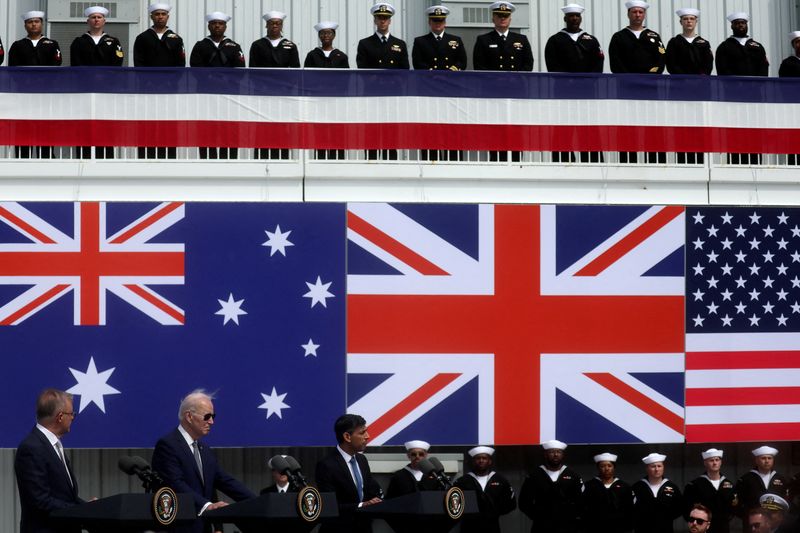By David Brunnstrom
WASHINGTON (Reuters) - The top U.S. official for arms control said on Wednesday she is "very confident" the United States will certify Australia and Britain as eligible for exemptions from export-control regulations under the AUKUS submarine project.
Asked at a congressional hearing whether President Joe Biden should decide in April that Australia and Britain have comparable defense export control systems and so qualify for the exemptions under U.S. legislation, Under Secretary for Arms Control Bonnie Jenkins replied:
"They (Australia and Britain) are doing what they need and we're doing what we need to put in place all the steps that have to happen so that we can certify. I feel very confident that we will certify."
The AUKUS project unveiled by the three countries in 2023 involves Australia acquiring nuclear-powered attack submarines as part of efforts by the allies to push back against China's growing power in the Indo-Pacific region.
AUKUS requires the sharing of closely guarded U.S. nuclear-propulsion technology with Australia, as well as other technology sharing with it and Britain, governed by strict U.S. International Trafficking in Arms Regulations (ITAR).
This is provided for in the 2024 U.S. National Defense Authorization Act passed in December, but requires Biden's final signoff by mid-April.
At the hearing before the House Committee on Foreign Affairs, Jenkins also stressed the need for the House of Representatives to pass a supplemental budget bill approved by the Senate, which includes AUKUS-related funding to bolster the U.S. submarine production base.
"We have to keep showing that we're all-in and ... people are watching what's happening with the supplemental," she said. "We need to pass a supplemental because of all the things in here, including AUKUS, that shows the U.S. wants to continue to be a leader."

The supplemental budget has been held up in Congress by Republican insistence that any package of international military and humanitarian assistance must also include measures to address security at the U.S. border with Mexico.
Republican U.S. House of Representatives Speaker Mike Johnson indicated again on Wednesday he has no immediate plans to allow the chamber to vote on the $95 billion package.